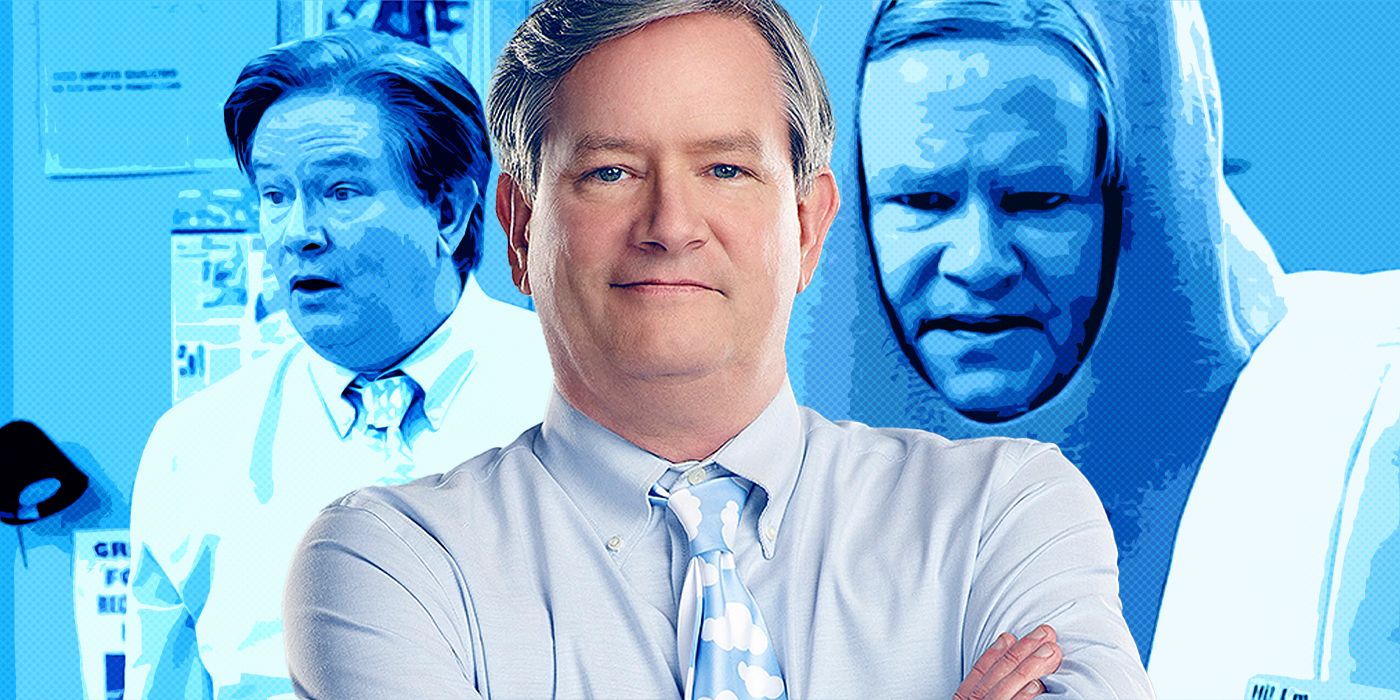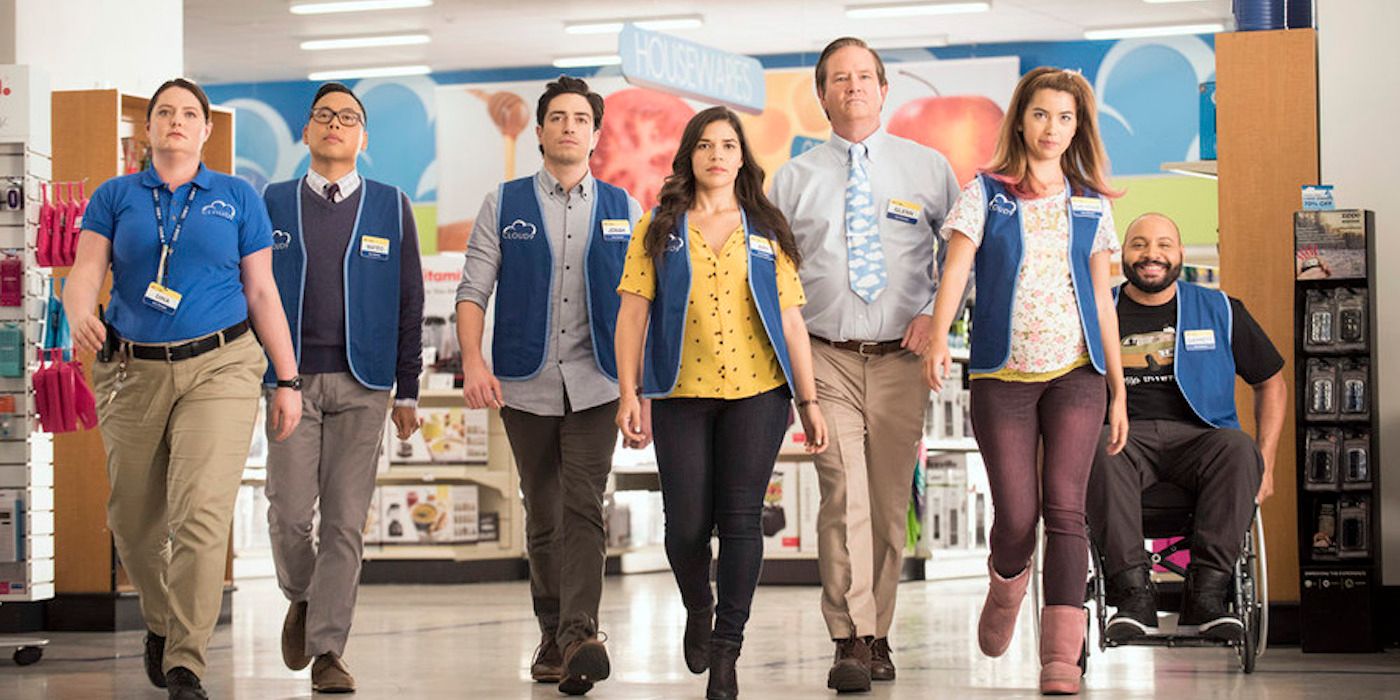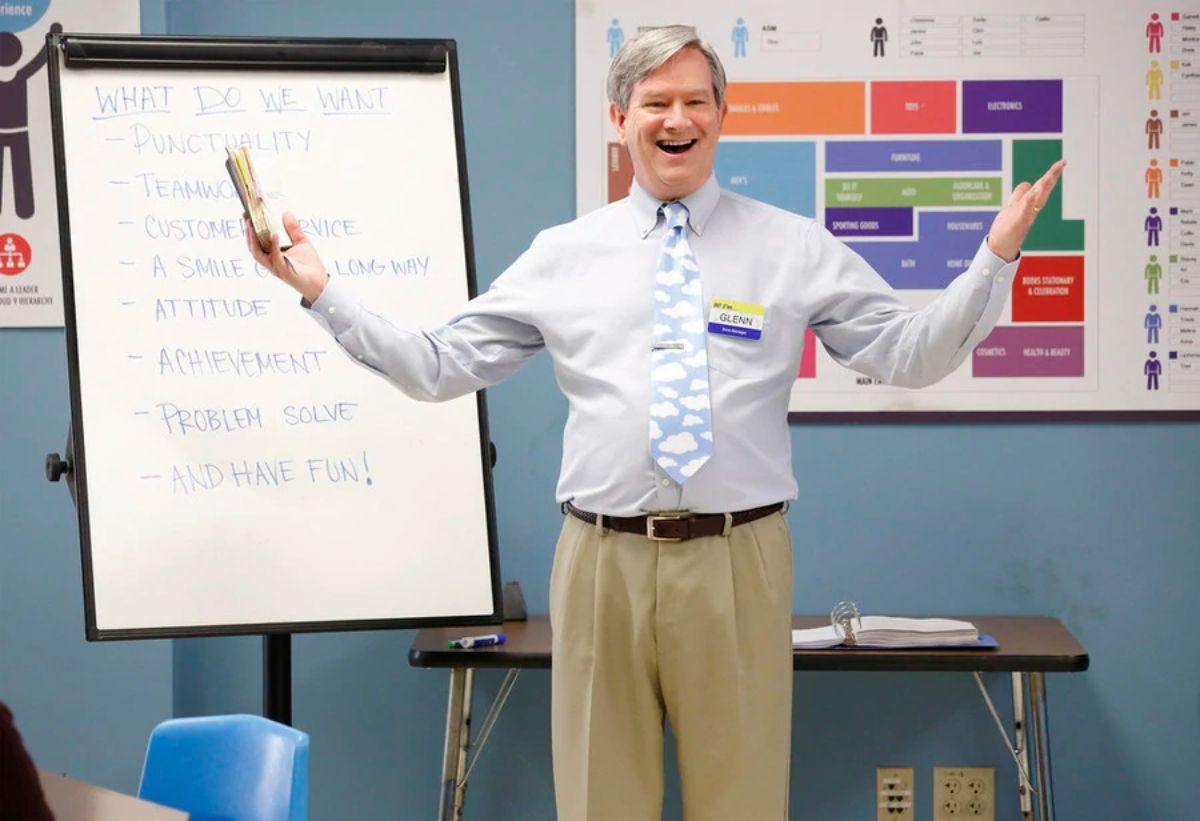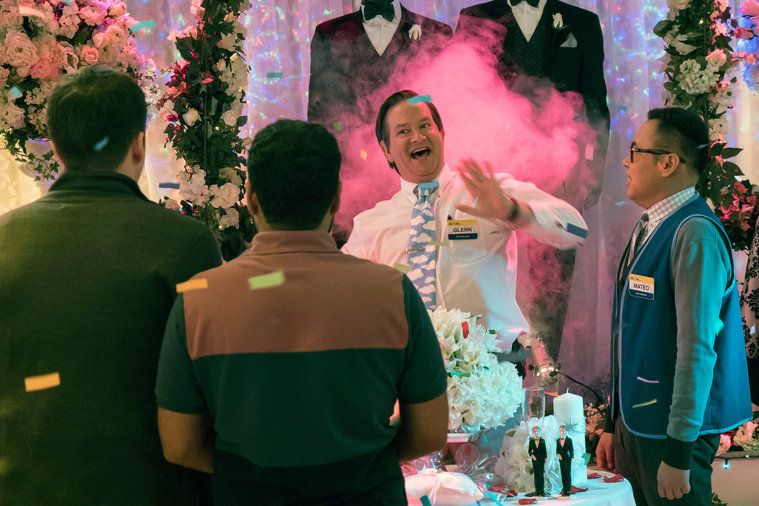Superstore is a workplace comedy in a league of its own in terms of creating well-rounded sitcom characters. It also brought a fresh, welcome perspective on workers’ rights to TV. Pairing these two features together created a character who deserves more recognition: Glenn Sturgis (Mark McKinney)., who had values opposite of those that the show he was a part of stood for — and, yet, viewers still rooted for him.
Superstore is a series that fights for the working class. It stands out from other workplace comedies, like The Office or 30 Rock, or even those highlighting government jobs, like Parks and Recreation or Brooklyn Nine-Nine. Superstore was for those working in retail. This experience is shared by so many. Yet despite the hilarity ripe for content that this type of career produces, those of us who have worked a job like this remain underrepresented. Superstore not only aimed to represent these folks –– but also to represent their needs and the needs of so many others all at once. From immigration and deportation to family leave to being forced to work during a life-threatening pandemic, Superstore never shied away from real-life issues often deemed too political, and they never portrayed them in a way that didn’t seem rooted in reality and the plights of real people.
The store manager of the titular Superstore didn’t shy away from things normally deemed too political, either. At its start, Cloud 9 Store 1217 is the series’ focus, and it’s had the same manager since 1989: Glenn Sturgis. Glenn is an evangelical Christian, and his political beliefs align with what one might expect in that case. These beliefs, of course, do not align with many plights of workers or the plights of Superstore’s leads, Amy (America Ferrera) and Jonah (Ben Feldman). Glenn’s values and politics lie pretty far from that of the show, itself. He’s ignorant and stuck in his own bubble. He’s outspoken at work about his anti-abortion position and staunch religious views, much to the chagrin of some of his employees. He makes many ignorant comments. He also seems to have little concept of the struggles of the surrounding workers, and he is happily beholden to the wishes of the higher-ups at the corporation.
Despite what you might imagine, Glenn is no villain. In many ways, Glenn is the picture of innocence (as much the picture of innocence as a middle-aged boss could be, of course.) He’s prone to making mistakes – like accidental embezzlement and accidental voter fraud, but the notion of doing anything perceived as ethically “wrong” is terribly troubling to him. Glenn is sweet, goofy, and lovable. Even when he’s outspoken about his views, he seems simply misguided, rather than unfeeling. In a series about the individual vs. the corporation, Glenn stands uniquely in the middle. He both has power over his many employees and falls victim to the whims and choices of the higher-ups that often side with the bottom line, rather than the bottom rung of employees.
Glenn’s unique perspective doesn’t begin and end just with his juxtaposition of ignorance and kindness. Glenn does something that makes him stand out among characters with similar traits from other media: he changes. He learns and grows in ways that feel organic and natural. As the series progresses, he has many encounters with his employees that cause the veneer of his politics to begin to chip away. He may be the manager who’s often the messenger enforcing some unfair rules, but he’s never short on empathy —and it seems that when this coexists with his close relationships with his employees, things begin to get reasonably muddied.
Things first come to a head when Glenn’s teenage employee, Cheyenne (Nichole Sakura), is forced to work while at the bitter end of her pregnancy. It’s hard to argue with the notion that she’s found herself in an unfair, undesirable situation, but Cheyenne never complains about it. She states very simply that taking unpaid time from work at the physically taxing end of her pregnancy or the vital beginning of her child’s life is not an option. To Cheyenne, this is just a fact, yet Glenn can’t bear this truth and suspends her from work with pay to give her some much-needed time at home.
As a result, Glenn is fired as manager. In response, the vast majority of the employees stage a walkout in defense of Glenn. Once the walkout is underway, the protesters discuss the demands they’ll make before returning to work. Understandably, the list of demands grows longer with every second of brainstorming, and most of them (barring “vaping in the store” and the workplace being moved closer to one employee’s home) seem more than reasonable. But, ultimately they agree that their only demand should be the real reason they’re all there: they want Glenn’s job back. The notion of a walkout taking place amongst disgruntled employees because a vehemently conservative manager has attempted to give a pregnant teenager paid maternity leave that the corporation refuses to give out sounds a lot more like a sitcom plot than anything steeped in reality. But, this plotline isn’t all about comedy. It’s about deepening the series’ core beliefs.
The little battles adding to Glenn’s arc remind viewers of their fantasy outcome for out-of-touch friends or family members. Glenn makes it feel possible that folks can change, and it makes it easy to love and root for him, even if you don’t agree with him. In Season 1, Episode 8 (“Wedding Day Sale”), Cloud 9 is having a special sale on wedding-related items. In an attempt to prove his tolerance and eagerness to represent marriage equality, Glenn somewhat obnoxiously and clumsily tries to set up mannequins to look like two grooms and portray a “gay wedding” in a very over the top way. When a gay couple spots what Glenn is doing, one of the men whispers to the other, "He's just like your dad two years ago..." and the other nods as if this helped him to understand Glenn’s angle. This is a fantastic way of summing up Glenn: he’s your once-intolerant dad when he first started to learn and change. Even better, if you still have an intolerant dad, Glenn is a glimmer of hope that two years from now, he may be awkwardly dressing up mannequins as two over-the-top grooms.
For a series with such a vital and particular viewpoint, it’s refreshing and impactful to have a character with opposing views, a kind heart, a sympathetic personality, and an ability to learn organically and without it feeling heavy-handed. Shows with a particular angle may not be so quick to defend the other side or portray an opposing view in a gentle and empathetic light, but Superstore shows how this can only add to the complexity of a series’ view.
In the wake of Superstore, there hasn’t been another Glenn. Still, it’s clear that shows like Ted Lasso are eager to bring these characters to life. Characters like Glenn aren’t easy to create well, but with Glenn as a guidepost, more characters like this can only be a benefit to television. Most of us likely know people with views that differ from our own and how hard it can be to coexist happily with them. For many, it can be just as common to have folks in our lives who we wish could see the light. Glenn is a representation of a kind of fantasy of someone who does just that. He’s also an example of someone who just needs a push in the right direction to let his empathy overtake the stronghold of what he’s been taught. These situations aren’t unheard of and seeing them represented in folks like Glenn work to further delicately enhance Superstore's meaning.




